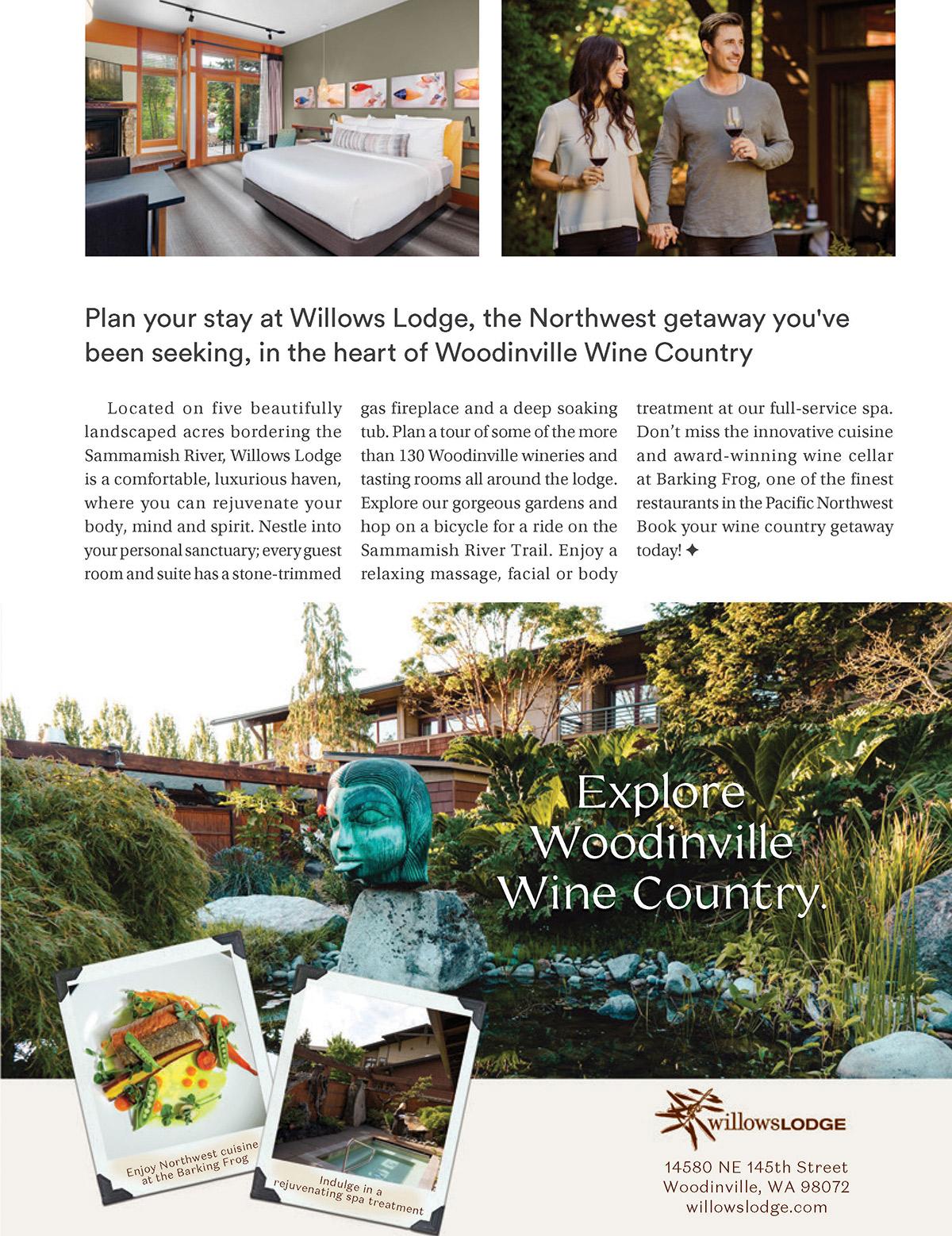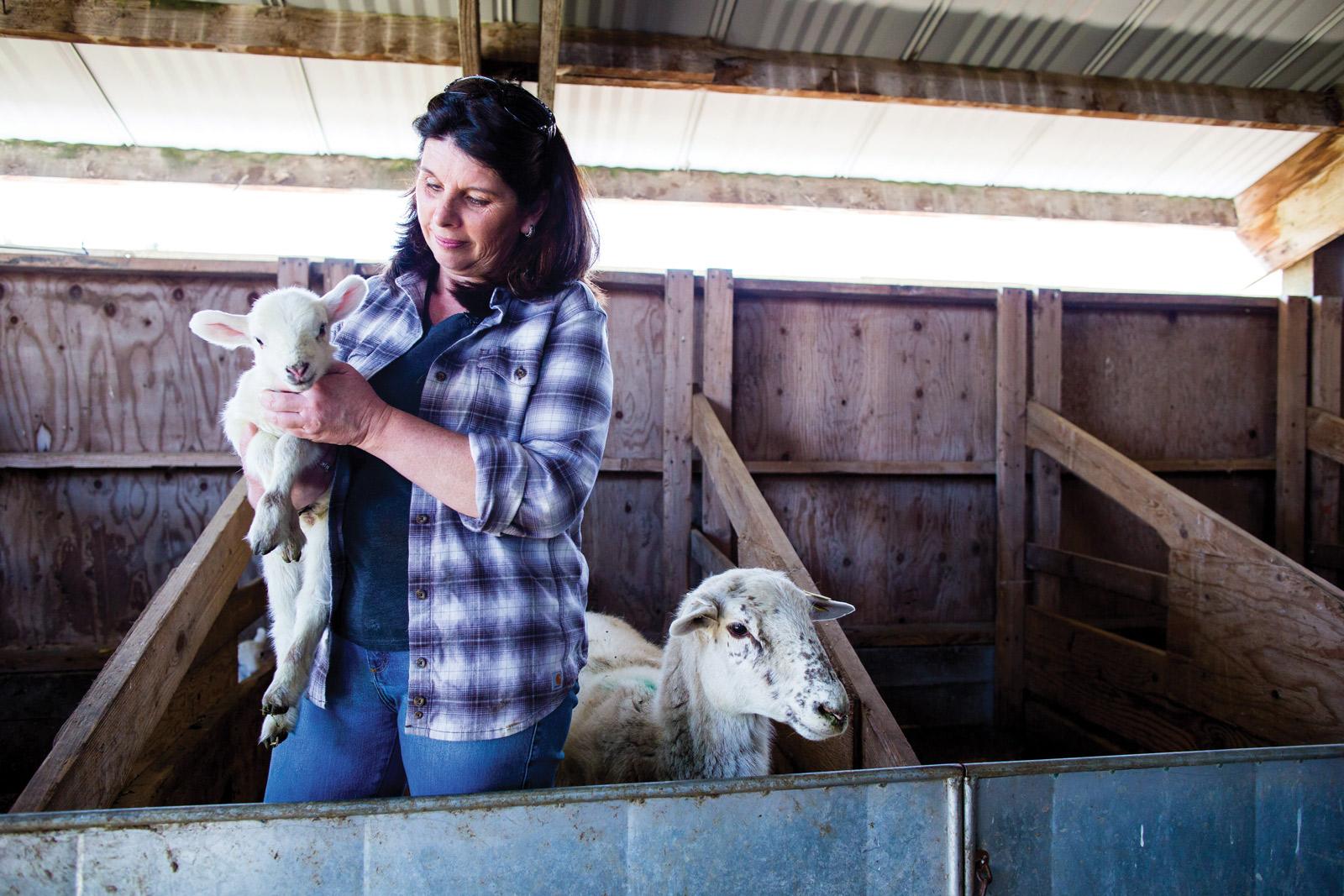
Bringing “Another Breath of Life” to Agriculture
Farmland Advocate Linda Neunzig Connects People to Place
BY ELLEN HIATT
Food systems, our environment, housing, equity — so much in our lives depends on our land. Linda Neunzig deftly navigates the ecosystem of competing interests to connect people to place and forge opportunity where others declared defeat for agriculture in Snohomish County.
I cry every time a piece of farmland goes away. You can never bring it back. The loss isn’t inevitable, she said. I refuse to go there. It’s problem solving, right?
Snohomish County’s exponential population growth and land use decisions have resulted in the extreme fragmentation of farmland and Neunzig, Snohomish County’s Agriculture Coordinator, aims to protect as much as she can.
“It’s all connected… The big picture is really about the little picture,” she said. “It’s every individual person and how do you make a difference in that person’s life.”
She’s a connector, said Michelle Connor, President and CEO at Forterra, the Pacific Northwest’s largest land conservation non-profit.
“If you think about the landscape and communities, it’s all about relationships: people to each other and people to place. And when those relationships fray you have unhappy outcomes.”
Linda has spent her life knitting them back together, adds Connor.
Name anything food or natural resource related in the county and Linda has had a hand in it, if not been instrumental in its success.
During the pandemic, she created Nourishing Neighborhoods, working through the county’s human resources and emergency management departments to redirect food from local farmers, hard-hit by restaurant closures, to provide food security for children now learning from home. The program was a lifeline for farmers, said County Executive Dave Somers.
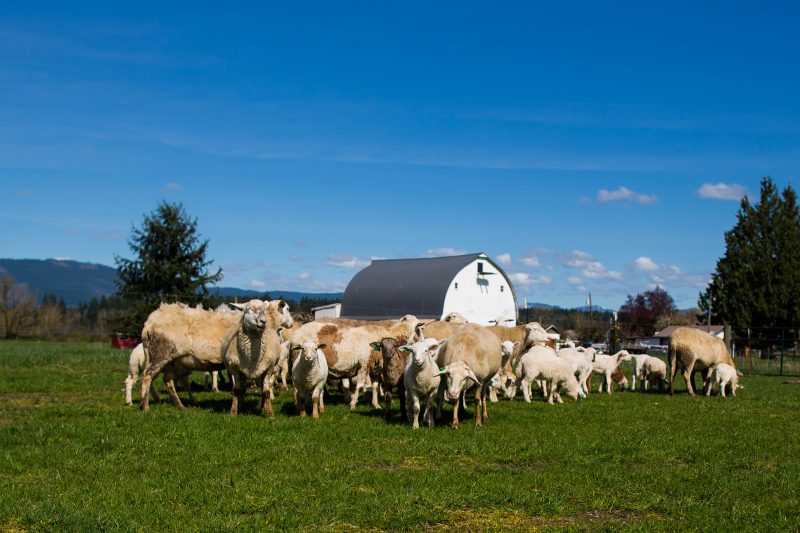
“The thing about Linda, she knows everybody in Ag,” he said. “What they do. Where they live. Strong points. Weaknesses. If you need to reach out to somebody, to pull off something like the Nourishing Neighborhoods program — that was only possible with someone like Linda. She has an incredible grasp of the whole ecosystem.”
Neunzig was also critical to the implementation of the 5G Food Resiliency project — cutting edge monitoring technology for weather and irrigation, reducing usage by up to 75 percent in one installation. Its potential to help keep farming viable is enormous. For 15 years Neunzig worked to grant farmers needed resources with the creation of the new Food and Farm Center in McCollum park. With $2.55 million in funding gathered in 2021, the county will create a new facility for processing, storing, refrigerating and distributing their fruits and vegetables. A commercial kitchen and offices will also come in a following phase of development.
The Darrington Wood Innovation Center is “another ‘pinch me’ thing,” Neunzig said. She and Darrington Mayor Dan Rankin galvanized to bring economic opportunity to the more isolated northeastern part of the county after the tragic Oso landslide highlighted the region’s economic challenges.
In 2021, a 94-acre campus, soon to provide 150 jobs, was fully funded for advanced wood manufacturing and a cross-laminated timber manufacturer (CLT) facility.
Rankin, a logger himself, wanted jobs the logging community could embrace, jobs that kept people in the community to watch family baseball games and serve on committees.
“I think that we made a really good team,” Rankin said, delivering an understatement of the year. “We figured out how to bring a suitcase full of successes as we navigated the roadblocks. It was pretty phenomenal. She’s an inspiration to work with. She’s going to find a way if there is a way. It’s been really amazing to have the opportunity to not only work with her, but become close and dear friends over the years.”
Tenacious. Passionate. Clear Thinker. Credible. Independent. Decisive. A friend.
If there is a word to describe the passion and compassion that Neunzig brings to her mission, her colleagues have used it.
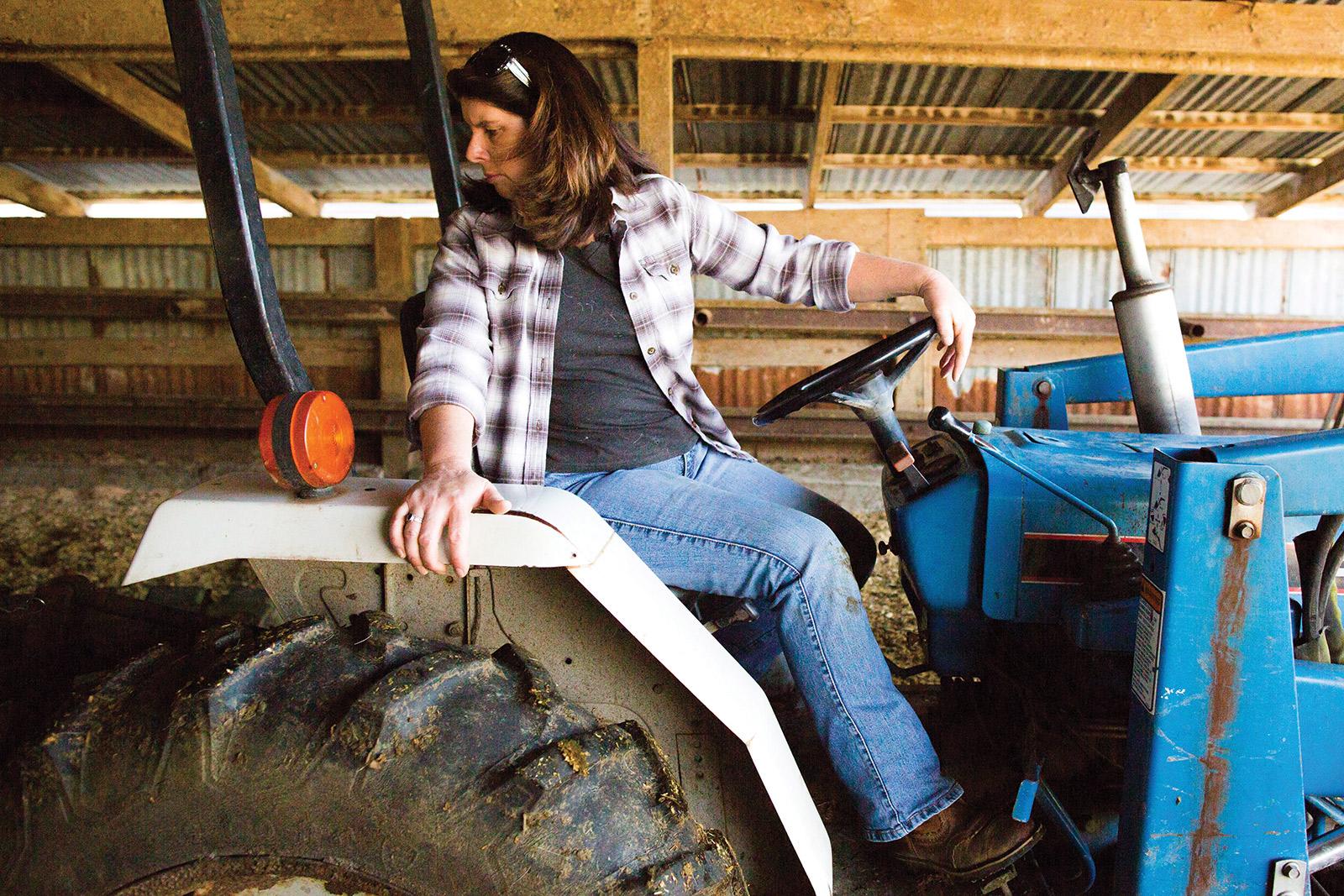
“Ten to 15 years ago we kept hearing ‘Ag is dead. Nobody cares about Ag’,” said Somers. “That whole attitude has turned 180 degrees and she’s right at the center of it… She’s clear spoken. There’s no bologna.”
From a $16.7 million grant to bring broadband along the SR 530 corridor between Arlington and Darrington, to the Food and Farming Center, there continues to be bright lights on the county’s agricultural horizon.
“Each one of these little pieces comes together… and Linda has her hand in a lot of it. It’s transformative for Snohomish County and Washington State. And in appropriate ways,” he said. Neunzig carries credibility with policy makers, said Somers, and engenders loyalty in everyone from farmers to chefs.
Russell Lowell of Russell’s restaurant in Woodinville, credits her with helping him create a bond with animals, even meeting him at the fair every year to look at chickens. He recalled Neunzig soliciting his eleventh-hour help for a Focus on Farming dinner.
“One year, she had this chef pull out at the last minute. Four hundred people,” said Lowell. “And he pulled out the day before! She called me. I said ‘I got you.’ Only for Linda. She has a way.”
Neunzig was responsible for the inclusion of the consideration of food security in land use decisions in the Sustainable Lands Strategy’s recommendation for the county’s Comprehensive Plan update, said David Roberts, consultant with Peak Sustainability Group.
“Those are things that are deeply important to her,” he said. “She is really trying to think about quality of life and food security, and the viability of the agricultural industry.” Roberts recalled pitching a study in his first conversation with Neunzig.
“She blew it off,” he said. But soon the two were working together on the Sustainable Lands Strategy. “She said ‘Look, ask me anything — I can keep you out of trouble.’ I always felt like that door was always open, and whatever briskness was in that initial sales call rapidly disappeared. She’s been an incredible ally ever since.”
While first-generation farms focused on sustainability, practicing permaculture, regenerative and organic farming, are important, Neunzig said, the system won’t work without the large-scale farmer. As a sheep farmer, she needs the veterinarian that the larger rancher helps keep in business. And she needs farmers like Andrew Albert to help till when her grazing field needs a crop rotation. The relationship between small and large farmer is symbiotic.
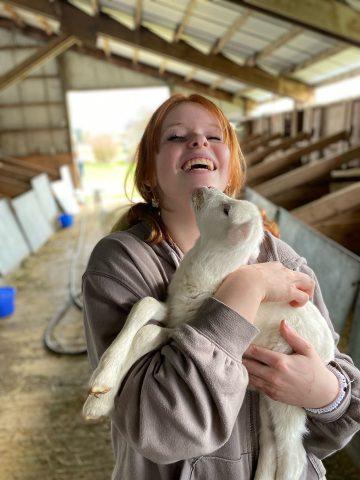
Neunzig is owner of Ninety Farms, a 50-acre sheep farm in Arlington where the North and South Forks of the Stillaguamish River meet. Her hair sheep provide grass-fed Katahdin lamb for Seattle restaurants, and she exports breeding stock to the Philippines.
When the 104-acre Riverbend dairy farm in Arlington was divided for development, bankruptcy left its fallow fields in limbo. Neunzig sprang into action.
Linda would do what she does: make phone calls, talk to people, generate funds, generate interest, get political backing, start the fire and stoke the embers and we would have another breath of life.
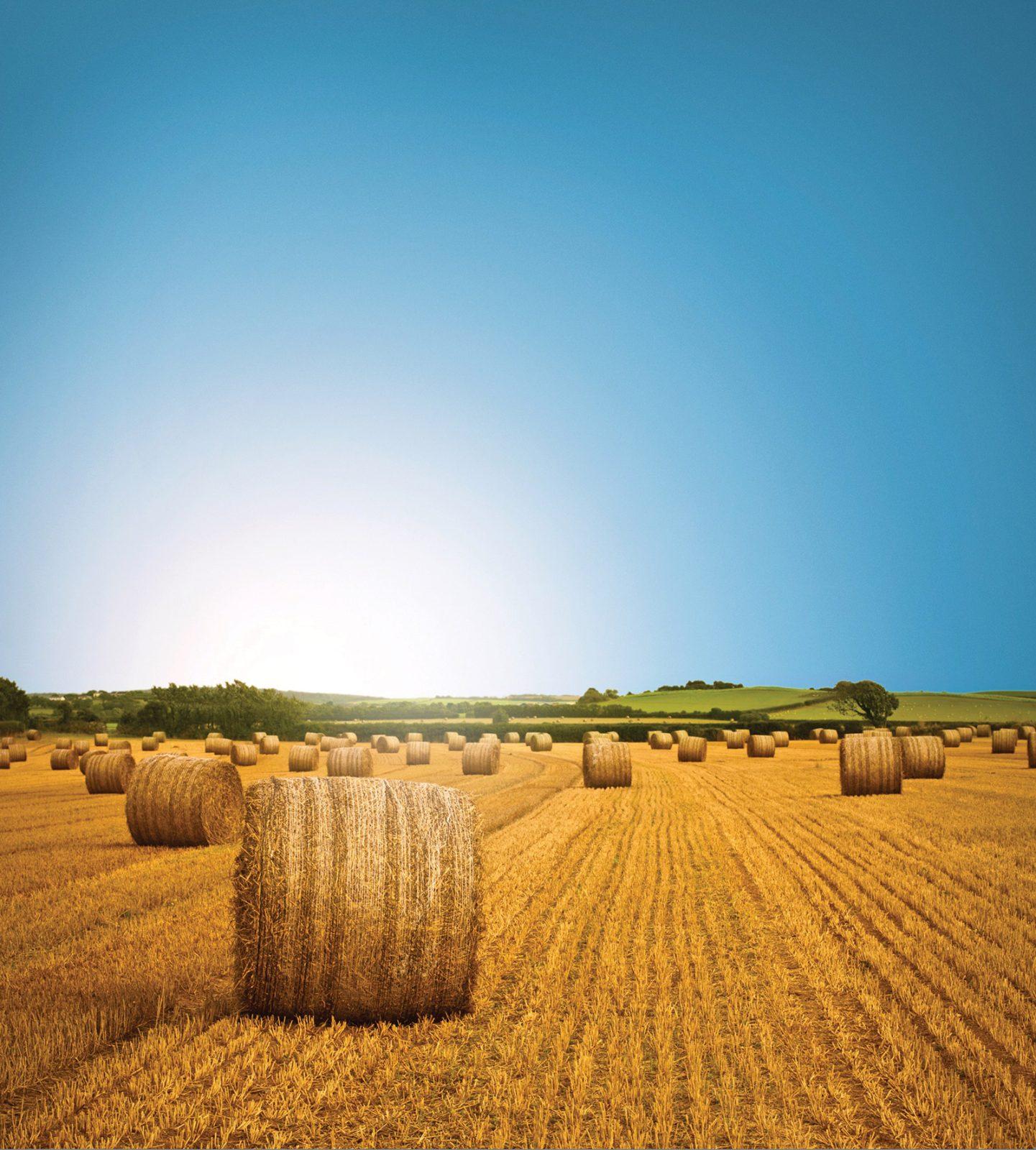
“Up the road was the Alberts family. Andrew had made a business for himself with encouragement from a lot of people, including Linda,” said Connor. Neunzig knew that for Albert to grow his hay farming business, he needed a larger place of operation.
“She cajoled and poked at us (Forterra) long enough,” said Connor. “She figured out how to get it out of foreclosure and cross a series of critical hurdles. She would not let go so I couldn’t let go. She certainly understood what it meant to community and also to the next generation of farmers. Each hurdle, she was there with us trying to solve the problem and connect us with people. She kept saying it was very important to do.”
Katahdin sheep on Ninety Farms. Photo by Audra Mulkern – The Female Farmer
“Because she had such a commitment to that place, to that person and to that idea of connecting that young person to a place,” Connor continued. “It didn’t matter what the hurdles were. She does weave people together. There were things that we needed from the city, administrators, ecology, the county, farm families. Each step she would make the calls and make the connections and encourage people to be their best self.”
The feat is not lost on Albert.
“I am forever grateful for her. That was a game changer for me,” he said. Since he moved operations into the Riverbend barn, his business has expanded from selling hay to USDA beef. “I see the growth coming more and more. We haven’t reached the potential created by getting that farm. Not even close.”
He credits Neunzig. “She never gave up, even when Michelle and I were like ‘God, I don’t know if this might be the one obstacle we can’t overcome.’ Linda would do what she does: make phone calls, talk to people, generate funds, generate interest, get political backing, start the fire and stoke the embers and we would have another breath of life.”
“All the farmers that work for Linda say ‘Whatever Linda asks, you just do it. You don’t ask why. It’s going to be in your best interest. Just do it.’ I can’t say enough nice things about her,” Albert said.
She’s a loud voice for Ag.




